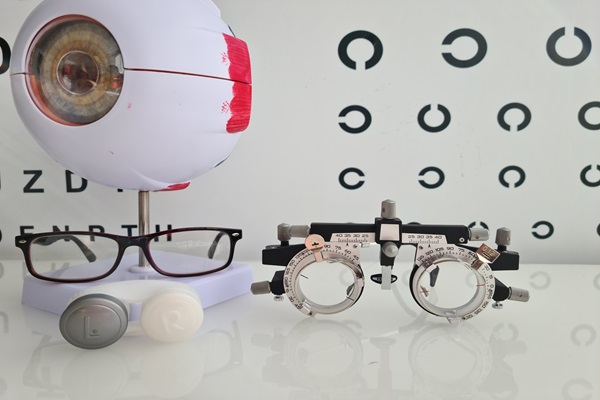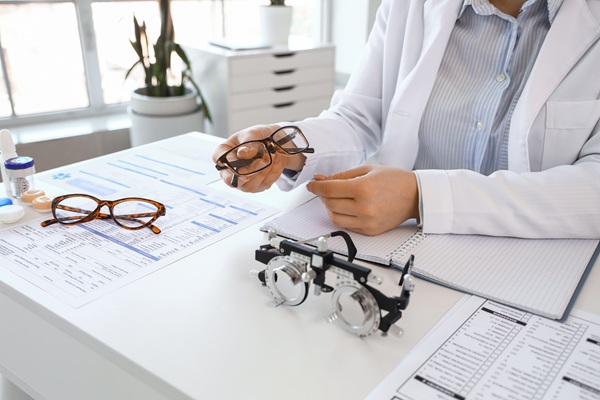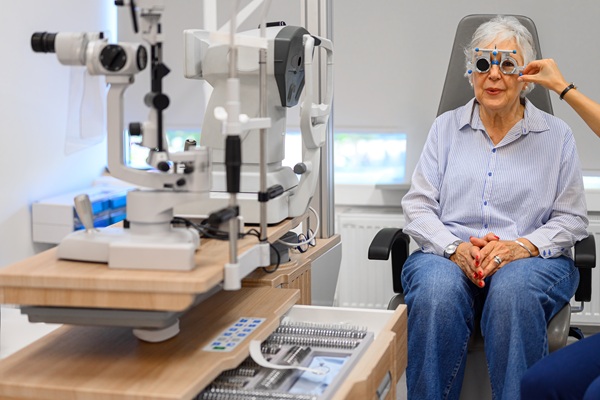Seeing an Opthalmologist About Retina Damage

If you have an issue with your retina, you need to visit the ophthalmologist. Ophthalmologists complete at least 12 years of education and training before going into practice. These doctors practice both surgery and medicine and can diagnose and treat your retina problem. Find out what to expect when you visit an ophthalmologist for retina damage. Then make an appointment, so you can get a proper diagnosis and undergo treatment.
Testing the retina at the ophthalmologist
The ophthalmologist must run a series of tests to determine the cause and extent of the retina damage. The examination typically takes approximately two hours. The pupils are dilated for the examination and remain dilated afterward. The pupils generally return to normal four hours after the examination. Learn the different tests the ophthalmologist runs to diagnose retina issues.
Visual field test
The ophthalmologist usually begins with a visual field test. The patient covers an eye and looks at a fixed spot in the room. A light flashes and the patient presses the button. The test diagnoses blind spots in the vision. If blind spots are detected, the ophthalmologist will conduct further testing to determine the cause. The blind spots might be due to a retinal detachment.
Slit-lamp ophthalmoscopy
The ophthalmologist conducts slit-lamp ophthalmoscopy to see the eye’s internal structures, including the retina. The ophthalmologist will likely begin by numbing the eye with a topical anesthetic. Then the doctor will place a diagnostic contact lens on the eye and use a special microscope to view the inside of the eye. The ophthalmologist can diagnose retinal detachments with this test.
Indirect ophthalmoscopy
Patients might also undergo indirect ophthalmoscopy. Patients recline in the examination chair. Doctors use a head-mounted instrument to view the retina and other interior structures of the eye. Ophthalmologists like this test because it allows them to see the peripheral retina.
Ocular ultrasound
An ophthalmologist can use high-frequency sound waves to examine the retina and the rest of the eye. These sound waves are dispersed using an ocular ultrasound. A gel is placed over the eye, and the ophthalmologist runs the wand over the eye. An ocular ultrasound can diagnose a retinal detachment, vitreous hemorrhage and vitreous detachment.
Fluorescein angiography
The eye contains blood vessels. If these blood vessels are damaged or abnormal, the patient can develop an eye issue. An ophthalmologist uses fluorescein angiography to look at the blood vessels in the retina. The ophthalmologist injects a dye into the arm and it circulates to the eyes. The doctor takes pictures and then views them to look for abnormalities.
Visit the ophthalmologist for an exam
If you have retina issues, it is time to make an appointment with the ophthalmologist. Your ophthalmologist will run various tests, depending on your symptoms. You might undergo a visual field test, slit-lamp ophthalmoscopy, indirect ophthalmoscopy, ocular ultrasound and fluorescein angiography. After the tests, the doctor will discuss your treatment options so you can decide which is the right one for you.
Request an appointment here: https://brighteyesny.com or call Bright Eyes Optometry at (914) 730-9574 for an appointment in our New Rochelle office.
Check out what others are saying about our services on Yelp: Ophthalmologist in New Rochelle, NY.
Recent Posts
An ophthalmologist visit becomes important when eye symptoms go beyond routine vision changes and signal disease, injury, or sudden shifts that need medical or surgical eye care. An ophthalmologist is a physician who diagnoses and treats eye conditions and performs eye surgery when needed.Many people search "optometrist" when they mean ophthalmologist, and the term often…
Cataract treatment can help you regain clearer vision and improved daily functioning. Professional care from an experienced optometrist offers benefits that can improve your long-term eye health and overall quality of life. The following guide outlines the three major benefits of cataract treatment provided by a trusted, experienced optometrist.During regular appointments with an optometrist, they…
Prescription glasses are an important part of clear vision and eye health. However, if you break or damage your glasses, it is important to act quickly to avoid further problems and restore your sight. Fortunately, taking care of damaged prescription glasses as soon as possible can save you time, money, and discomfort.The first step after…
Dry eye may start with mild irritation, but over time, it can begin to interfere with focus, comfort, and even quality of life. An optometrist can help when this condition becomes more than just a temporary annoyance. There are many potential causes of dry eye, including hormonal changes and seasonal allergies. With tools that reveal…


